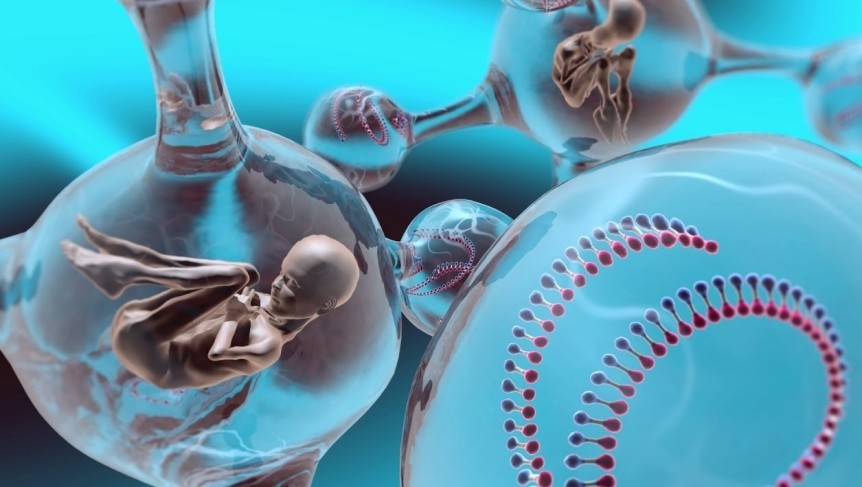Fertility treatments are designed for a single purpose: to create a single, healthy baby that is carried full-term, using as few treatment attempts or cycles as possible. There are very specific tools and routes we use to achieve this goal, all of which are tailored to specific infertility diagnoses. ICSI is one of these highly-specialized tools.
Intracytoplasmic sperm injection (ICSI) is one of the most effective ways to ensure an egg is fertilized prior to an IVF treatment in cases where male infertility (poor sperm morphology and/or motility) is a factor.
Rather than relying on the sperm to fertilize the egg on their own in the lab, embryologists manually inject a single sperm into a mature egg retrieved from the female. While this process doesn’t guarantee fertilization, it significantly increases the odds of fertilization and resulting embryos that can be used for in-vitro fertilization (IVF).
CFA Uses ICSI to Increase Patients’ Chances of IVF Success
During conventional IVF procedures, sperm and eggs are retrieved from each partner. Then, they are mixed together in the same dish and allowed to fertilize of their own accord. For this to occur, there should be hundreds of thousands – if not millions – of sperm available in the sample. The idea behind this method is that the healthiest and most well-suited sperm will be the ones to find and penetrate the egg, more closely mimicking unassisted conception.
When low sperm motility and/or morphology are involved, this conventional method is not as successful. In some cases, there may be no resulting embryos – in others, there may be only one or two.
How does ICSI work?
With ICSI, we take a more controlled approach to fertilization. The female partner goes through a fertility medication protocol for IVF egg retrieval, after which her eggs are retrieved. The male partner contributes a sperm sample. Once we have the sperm sample is submitted, it will be taken to the lab where it is carefully washed. When we look at a washed sperm sample, we have the ability to select sperm that look the “best” – meaning they have the most normal shape and are swimming wicsiell.
Then, using a very fine glass needle, the embryologist can select an individual, healthy-looking sperm and inject it directly into the egg. In this way, we can typically use ICSI on each egg retrieved from the mother. So, rather than mixing 12 eggs and hundreds of thousands of sperm, hoping each egg will be found and penetrated by a sperm, ICSI ensures each egg is penetrated by a health-looking sperm.
What are the success rates of ICSI?
In terms of fertilization, ICSI is very successful. In most cases, with healthy sperm and good egg quality, we achieve an average fertilization success rate of between 70% and 80%. However, fertilization rates are not the same as pregnancy rates. Once the eggs are fertilized IVF implantation rates for embryos conceived using ICSI are more or less the same as standard IVF success rates for women in the appropriate age bracket.
Who is a candidate for ICSI?
ICSI is almost exclusively used for couples with a male infertility factor diagnosis. That includes:
- Low sperm count (not enough sperm)
- Low sperm motility (sperm that don’t swim or move as they should)
- When blockages or other anatomical issues require sperm to be removed directly from the testes
- When semen has a high level of antibodies present (which can either work against the sperm from the time they’re produced and/or create an immune response in the mother, making it difficult to conceive)
If previous IVF cycles have been unsuccessful, we may suggest ICSI to have more control over the quality of the sperm used to fertilize the egg, although we reiterate that this hasn’t been shown to notably increase IVF success rates
Why Isn’t ICSI Used All the Time?
When you have an infertility diagnosis, and you want to achieve the highest rates of IVF success, it makes sense to wonder why we don’t use ICSI all the time. The reason why is because, to date, researchers haven’t found any notable difference between IVF success rates for couples using ICSI for male fertility factor and couples using ICSI without male factor infertility. Once the eggs are fertilized, IVF rates are the same.
Therefore, there is no point in paying extra money for a process that doesn’t seem to increase IVF success rates. It’s true that some specialists are recommending ICSI for couples who’ve had repeat IVF cycle failures as well as for some couples with unexplained infertility. Be very cautious in these cases. You would be better off considering other reasons – such as immuno-related infertility – before trying yet another approach that hasn’t been proven to make a marked difference in IVF outcomes.
Is male infertility affecting your ability to get pregnant? Contact us here at Columbia Fertility and Associates. Accurate assessment and infertility diagnosis are key to fast-tracking your fertility treatment for the most successful outcomes.



 WhatsApp us
WhatsApp us